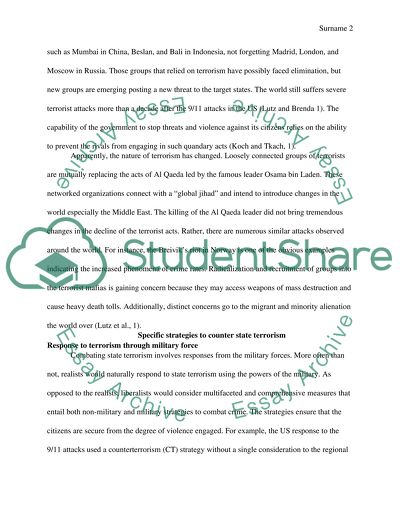Cite this document
(“Strategies to counter global terrorism attacks Essay”, n.d.)
Strategies to counter global terrorism attacks Essay. Retrieved from https://studentshare.org/military/1690309-strategies-to-counter-global-terrorism-attacks
Strategies to counter global terrorism attacks Essay. Retrieved from https://studentshare.org/military/1690309-strategies-to-counter-global-terrorism-attacks
(Strategies to Counter Global Terrorism Attacks Essay)
Strategies to Counter Global Terrorism Attacks Essay. https://studentshare.org/military/1690309-strategies-to-counter-global-terrorism-attacks.
Strategies to Counter Global Terrorism Attacks Essay. https://studentshare.org/military/1690309-strategies-to-counter-global-terrorism-attacks.
“Strategies to Counter Global Terrorism Attacks Essay”, n.d. https://studentshare.org/military/1690309-strategies-to-counter-global-terrorism-attacks.


